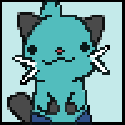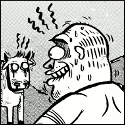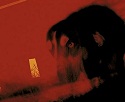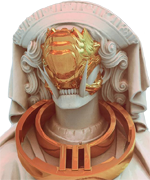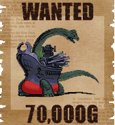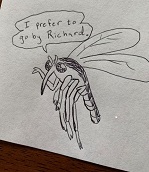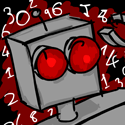Sargeant Biffalot posted:This is on the right track pointing to different expectations but the terminology is a bit misleading. Wolfe's stuff is in the pulp tradition so anything longer than a short story takes the form of a picaresque. Compared to the quest structure of the later doorstop fantasies it's a less coherent a plot structure, and Wolfe executes it less tightly than most pulp writers, but he's still no way near as ponderous as the average post-pulp fantasy writer. Martin's a good example, his stuff has a really well designed plot that requires many storylines to stall or go through holding pattern digressions while the slower one's catch up. Whereas even a dreamy picaresque like BoTNS never needs to spend longer on a setting or idea than it takes to develop it. It's a case of reading for what's happening on the page vs. reading for what's going to happen in the next chapter. Ok, this is a really good argument, and I'm still thinking about it, but if you'll allow me to indulge in a bit of genre criticism as a first response, I'd posit that the picaresque is a more "primitive" format than later narrative structures; there's a reason that the earliest novels follow that format. That doesn't mean it's "bad," of course, but I do think that modern readers tend to expect a greater degree of, for lack of a better term, narrative cohesion, than you might typically find in a picaresque. And of course the other side of this is that the Book of the New Sun isn't a "pure" one-thing-happened-then-another-happened picaresque -- all the parts do fit together into a whole, there are throughlines of theme and subject, etc. The problem is that you have to be an almost supernally competent reader to put it all together and follow those themes, and you run into the modernist/pomo tug-of-war between "reader is too dumb to understand my masterpiece" and "this writer is incompetent at communicating his ideas." Hrm. Anyway, I'm not sure any of that made sense, and your points probably deserve a better response. I'll think more on this. Thanks!
|
|
|
|
|

|
| # ? Apr 20, 2024 00:23 |
|
Yeah I totally agree that readers generally like stuff with more structure to it than the picaresque and can be turned off by it's lack of structure, especially when comparing it to something like modern fantasy which is usually very clearly and dramatically structured. I just wanted to distinguish that from pacing because most of the writers in the pulp era had really great pacing due to really strict size constraints and most of the giant brick book guys don't due to the complete lack of them. And yeah there's a complex subtextual plot but you can do that with a more direct narrative too, like in Seven Soldiers or All Star Superman (I'm going to blame my picking comics here on your avatar). The surface plot would feel as aimless without them, assuming the protagonist was still described as bloodlessly.
|
|
|
|
I'm rereading BotNS after having read it in my early highschool years and it really is amazing how much of it completely went over my head in terms of...well pretty much everything. Also whipping out my phone to google some obscure vocabulary every few pages is always exciting, and engaging!
|
|
|
|
One of my favorite moments of the past year was visiting the West coast for a conference and discovering Lexicon Urthus in a rare/used bookshop. I haven't done a full re-read since my first, I just skip around and grab parts that I vaguely remmeber or don't remember at all, and it's been a handy little book.
|
|
|
|
Hopefully his new book will be more interesting. I read An Evil Guest and Home Fires and didn't understand any of it. The Sorcerer's House was better.
|
|
|
|
I finished Long Sun the other day, and thoroughly enjoyed it. The ending sure took me by surprise, though. It's just like Wolfe to completely shift the perspective of the entire four-book series in the last few pages, though I suspect that there are hints dropped earlier on. I'm not sure how I feel about the vampire planet yet, but I'm sure it will be better explained in the Short Sun books.. The thing I really loved about Long Sun was how fun it was to read compared to New Sun. The characters are complex, memorable and unique, and Wolfe is so good at creating different speech patterns for them that it's always easy to tell who is in a given scene. I especially loved, er, ah, Remora's, um, dithering, Incus's insistence on emphasizing the important points, and Oreb's fantastic interjections.
|
|
|
|
Don't forget Hyacinth's cat. The fact I had to stop and read that closely to understand what the hell it was saying really helped to convey the style of speech.tpg0007 posted:Hopefully his new book will be more interesting. I read An Evil Guest and Home Fires and didn't understand any of it. The Sorcerer's House was better. Agree with this. The Sorceror's House could have done with a bit more exploration of faerie too. I feel like Wolfe's books work best when he's employing his imagination to create weird concepts to go with the masterful writing and puzzle-box aspects. His novels like There Are Doors and An Evil Guest are just kind of... Eh, whereas the Solar novels and the Wizard-Knight are great fun, even if I don't always understand quite what is happening. Having said that, Peace is great even though it wasn't quite as out there are Wolfe's other top novels. Neurosis fucked around with this message at 08:56 on Nov 25, 2011 |
|
|
|
Encryptic posted:] (like the hints about what continent the story takes place on Is it Australia? There's been a couple things in the first fifteenish chapters of Shadow to make me think that.
|
|
|
|
Dickeye posted:Is it Australia? There's been a couple things in the first fifteenish chapters of Shadow to make me think that. South America, with Nessus maybe being Buenos Aires, IIRC. The Ascians are "people with no shadow" because they live to the north, near the equator, in Central America. However, it's been a couple of years since I've read the books so I can't remember the specific hints other than how Ascians were described having no shadow and living far away to the north.
|
|
|
|
Xenix posted:South America, with Nessus maybe being Buenos Aires, IIRC. The Ascians are "people with no shadow" because they live to the north, near the equator, in Central America. I always thought Ascia = America, what with the names being similar and all. (and the whole dystopian, 1984-esque vibe they all give off.)
|
|
|
|
From Lexicon Urthus: Ascians: the legendary inhabitants of the equatorial area, who twice a year have the sun directly overhead at noon, and then cast no shadow. But they are in the series the nation in the Northern hemisphere. Yesterday I read a chapter in the second book of the New Sun, called: The Tale of the Student and His Son. Could someone explain me what's the point? He arbitrarily stops the story to put that decontextualized tale in there, but that tale doesn't seem related in any way to what was going on, neither it has thematic connections of any kind. On Lexicon Urthus I read it is connected to the myth of Theseus and the Minotaur, but why? I mean, what should I get from those pages beside frustration? There is no apparent meaning, the story is hard to read because of its language, and it makes no sense since there's no logical flow, making it a bad story in its own right.
|
|
|
|
Xenix posted:South America, with Nessus maybe being Buenos Aires, IIRC. The Ascians are "people with no shadow" because they live to the north, near the equator, in Central America. It's definitely South America. I read a bit of discussion elsewhere that confirms it and you pick up a lot of hints from the text like "the rotting jungles at the waist of the world" (the equator) and mate (a very common drink in South America) is mentioned multiple times, including as a cheap drink served to the prisoners in the oubliette. The leader of the village they're in the beginning in "Claw" is called an "alcalde" - an old Spanish term for a magistrate. Also Apu-Punchau (the guy they're trying to resurrect in the stone city at the end of "Claw") is an Inca sun god. Abalieno posted:From Lexicon Urthus: I think we're supposed to get an idea of just how old that story is in the book's timeline - Jonas apparently remembers it from when he last visited Urth (which was an incredibly long time ago). He mentions a couple of details from the original myth that were changed in Severian's version. I'd also argue that it ties into the mythos of Erebus and Abaia being the opponents of the Conciliator/The New Sun. The men in the story are assisted by the daughter of Night and of the ogre they've come to slay. The ogre himself is apparently some great beast who lives underwater (much like Erebus in Urth's mythos). In Greek mythology, Erebus is supposed to be a god who personifies darkness and fathered several children upon Nyx - the goddess of Night. Encryptic fucked around with this message at 15:41 on Dec 4, 2011 |
|
|
|
The "use" in the story was mostly to trigger Thecla's memory (through the brown book) and so remember the secret door to escape the antechamber. A deus ex machina if you want. There's also the fleshing of a "son" made of dreams, since Thecla seems also to appear in some ways. The part of the myth that Jonas says has changed is specifically the myth of Theseus, that explains how the myth lost its original meaning to acquire a different one (same as when they find "Kimleesoong", it's to show our own world in the distant past). But I still don't grasp any relevant interpretation.
|
|
|
|
Encryptic posted:It's definitely South America. I read a bit of discussion elsewhere that confirms it and you pick up a lot of hints from the text like "the rotting jungles at the waist of the world" (the equator) and mate (a very common drink in South America) is mentioned multiple times, including as a cheap drink served to the prisoners in the oubliette. The leader of the village they're in the beginning in "Claw" is called an "alcalde" - an old Spanish term for a magistrate. Also Apu-Punchau (the guy they're trying to resurrect in the stone city at the end of "Claw") is an Inca sun god. There's also a section at the end of Sword that pretty explicitly takes place on Lake Titicaca - Severian mobilizes a bunch of natives with floating islands to assault Baldanders' castle.
|
|
|
|
tbotns is my favorite series, and the one I've reread the most over the years, but I never much cared for the fourth book in the series. Its been so long since I read it however that I can't remember distinctly why Thanks to this thread I'm going to reread it (maybe after the trilogy
|
|
|
|
_jink posted:It's so difficult to find other writers who even attempt that almost abstract scifi that I find so evocative. Viriconium? It's almost the same thing...
|
|
|
|
_jink posted:It's so difficult to find other writers who even attempt that almost abstract scifi that I find so evocative. Have you ever tried reading Cordwainer Smith? As with Wolfe's Solar Cycle, his stories are mostly set within the same fictional universe, so there's a similar sense of continuity. His stories have a strong Chinese influence, but his Anglican faith factors into them as well, and his writing contains enough dense symbolism and complex wordplay to satisfy Wolfe fans.
|
|
|
|
Abalieno posted:Viriconium? It's almost the same thing... Yeah, Viriconium is about the closest thing to BotNS out there. Similar "dying Earth" setting to start with but it goes off in a very unique direction.
|
|
|
|
GeneralZod posted:Bump for eBook news - 3/4 of the Book of the New Sun quadrilogy were (finally!) released as eBooks yesterday. Bump for eBook news II: All the Book of the New Sun quadrilogy are now available and (in the UK at least) are currently on offer, along with the rest of the sfgateway stable, for £2.99 each instead of the usual £4.99.
|
|
|
|
Encryptic posted:Yeah, Viriconium is about the closest thing to BotNS out there. Similar "dying Earth" setting to start with but it goes off in a very unique direction. Grabbed this on the recommendations here! & ignoring the completely mediocre first book, the abstract elements didnt't strike me as having any of the depth Wolfes do. Like... they are, in viriconium, the end result of the authors imagination, while Wolfes are more an engine to describe the fantastic. I hope that doesnt sound harsh; I still enjoyed Viriconium a lot, but I'm not sure I'd recommend it as more BotNS. It reminded me a lot more of china mievilles writing honestly (including characters that werent terribly strong).
|
|
|
|
I didn't notice this thread before but I just finished Shadow of the Torturer and it was a great experience. I have the shadow and claw combo thing so I'm on the next one now. I had no idea what I was going in for when I started but I put this in my favorites shelf on my goodreads profile. If I enjoyed Shadow this much I'm pretty much going to like the rest of the series right? The style alone is almost enough to keep me reading. The lack of structure people were talking about is appealing to me. I feel like the story has no restrictions on where it may end up and there's plenty of meaning below the surface to digest when you feel like digging into it. I've been wondering if Wolfe is walking around with all those crazy words in his head or if he had some ancient thesaurus to cheat with.
|
|
|
|
Found this on Tumblr, can't attest to it's authenticity.quote:7th November 1966
|
|
|
|
That's totally authentic. Wolfe printed it in his essay on Tolkien. Well, "totally authentic" if you want to trust Gene Wolfe narrating his own life. I guess.
|
|
|
|
Quick question... I loved the New Sun books and enjoyed the Wizard/Knight books but never fully got into the Long Sun books. Should I give them another chance or does someone have a better suggestion?
|
|
|
|
I think it's worth it. The first book moves a little bit slowly but the pace gets faster and faster and each book is very different in style, so that disliking the beginning of the first is not a herald of doom for the whole series. It also sets up the Short Sun books which are closer to the New Sun and also excellent.
|
|
|
|
I'm near the end of Botns. At first I couldn't quit understand all of the hubbub, but he more I read the more I was sucked in. However, I'm still at a loss toward perceiving much of the depth and cleverness which people so often attribute the work. I'm hoping some of you all can elaborate on some "holy poo poo" moments you had while reading.
|
|
|
|
Hels posted:I'm near the end of Botns. At first I couldn't quit understand all of the hubbub, but he more I read the more I was sucked in. However, I'm still at a loss toward perceiving much of the depth and cleverness which people so often attribute the work. I'm hoping some of you all can elaborate on some "holy poo poo" moments you had while reading. I'm finishing up a re-read of BotNS right now, and many of the Holy poo poo moments were, in hindsight, very subtle and I generally missed during my first read. Off the top of my head: The legend of St. Catherine, the patron of Severian's order, is the St. Catherine of the early Catholic church, who was murdered in exactly the way described. Implying the order of the Torturers began with her death. The painting Severian finds the curator restoring, described as a man looking through a bronze glass at a desolate wasteland. It's the moon, described in Severian's age as green. Jonas' true age.He mentions more or less modern sounding Korean names being common in his day, and is also familiar with the true story of the Minotaur, which has become corrupted in Severian's age. The story of Frog. It's an amalgamation of the founding of Rome and Richard Kipling's The Jungle Book. There are also a few holy poo poo the world is loving old moments: Several times Severian mentions some interesting qualities about the Sun of Urth:namely, that it's red, and that even at noon other stars are plainly visible. Which leads to an interesting thought (for me, anyway): How loving cold is Urth even during the warmest Summer days? At one point, after escaping Thrax, and just before meeting the Alzabo, Severian descends a large cliff face. When he looks back he sees a whole city buried under the cliff. He sees the faces of buildings, some ripped right through the middle, going up hundreds of feet up the side of the cliff. How many eons of civilizations is he viewing? Also, what caused the cliff to shear down the middle like that? Also, the mountains I missed entirely the first time reading. Every mountain of Urth is carved similarly to Mt. Rushmore today. Of all these the mountain of Typhon is greatest. Some little lies that Severian leaves out: On Thecla: they were lovers. He never says they weren't, but chooses to frame the relationship in such a way to suggest they weren't On Dorcas: she and Jolenta were lovers. Again, he never explicitly lies about this, but omits (deliberately!) many of the details of their relationship. Also(End of book 4 spoilers): she's his grandmother Anyway, I find myself discovering things such as this on each reread. The depth, the stories within stories, are what really make the HOLY poo poo moments for me.
|
|
|
|
Hels posted:I'm near the end of Botns. At first I couldn't quit understand all of the hubbub, but he more I read the more I was sucked in. However, I'm still at a loss toward perceiving much of the depth and cleverness which people so often attribute the work. I'm hoping some of you all can elaborate on some "holy poo poo" moments you had while reading. The biggest "holy poo poo" for me was actually fairly early in Long Sun, when I realized who Pas was and understood the connection to New Sun.
|
|
|
|
BuckarooBanzai posted:The painting Severian finds the curator restoring, described as a man looking through a bronze glass at a desolate wasteland. It's the moon, described in Severian's age as green. This just blew my mind. I read through it once a few months ago and I picked up on most of the things you mentioned, but this is just awesome and has rekindled my appreciation of the entire work. Simple but so brilliant. Question for e'erbody: After a single read-through of Botns, should I continue on to Urth of the New Sun, or should I give botns at least another go?
|
|
|
|
Hels posted:I'm near the end of Botns. At first I couldn't quit understand all of the hubbub, but he more I read the more I was sucked in. However, I'm still at a loss toward perceiving much of the depth and cleverness which people so often attribute the work. I'm hoping some of you all can elaborate on some "holy poo poo" moments you had while reading. But there was plenty I found amazing on my first read. The avernus duel, the idea of a vivimancer who summons the living, the magic duel, the heartbreaking climax of the alzabo sequence, and especially the moment when Severian finds a bush covered with Claws (thorns). And then there's the writing, which is full of amazing little observations that frequently forced me to stop and think when I was reading the book for the first time. Severian has a lot to say on human nature, the world, politics, and the divine. A lot of the time I disagree with what he says (and some of those times, I believe, Wolfe would disagree with as well) but his reasoning is often startlingly novel. The last time I reread the book I took extensive notes, and much of that was me grappling with what to make of a tricky argument. Most of that material was too long and in depth for me to type up (like Severian's analysis of magic after rescuing little Severian from the magicians, or his moment of transcendence with the Claw that ends with him removing his shoes) but I do have some of the more pithy lines typed out: Severian: "...By the same argument, the [entire] life must reside in each joint of every finger, and surely that is impossible." Ultan: "How big is a man's life?" Severian: "I have no way of knowing, but isn't it larger than that?" Ultan: "You see it from the beginning, and anticipate much. I, recollecting it from its termination, know how little there has been." - "Weak people believe what is forced on them. Strong people believe what they wish to believe, forcing that to be real. What is the Autarch but a man who believes himself Autarch and makes others believe by the strength of it?" - "It is said that it is the peculiar quality of time to conserve fact, and that it does so by rendering our past falsehoods true. So it was with me." - On Terminus Est: "Art had been lavished upon her, but it is the function of art to render attractive and significant those things that without it would not be so, and so art had nothing to give her." - Dorcas: "When the world is horrible, then thoughts are high, full of grace and greatness." [...] Severian: "...Nor do I believe that beautiful thoughts--or wise ones--are engendered by external troubles." [Dorcas places his hand on her breast] Dorcas: "Now, where are your thoughts? If I have made the external world sweet to you, aren't they less than they were?" - "In our commercial society, one may set one's price as high as one wishes, but to refuse to sell at any price is treason." - "A crowd is not the sum of the individuals who compose it. Rather it is a species of animal, without language or real consciousness, born when they gather, dying when they depart." - "I know little of literary style; but I have learned as I have progressed, and find this art not so much different from my old one as might be thought." (This seems like a quick, self-effacing joke on Wolfe's part but Severian actually develops this thought into a really meditation on literature, authority, and tradition.) - Green Man: "I am not a talking vegetable, as you should be able to see. Even if a plant were to follow the one evolutionary way, out of some many millions, that leads to intelligence, it is impossible that it should duplicate in wood and leaf the form of a human being." Severian: "The same thing might be said of stones, yet there are statues." - Severian: "What are you?" Green Man: "A great seer. A great liar, like every man whose foot is in a trap." - Green Man: "I drive away those who pay to see me by foretelling their futures, and I will foretell yours. You are young now, and strong. But before this world has wound itself ten times more about the sun you shall be less strong, and you shall never regain the strength that is yours now. If you breed sons, you will engender enemies against yourself. If--" Severian: "Enough. What you are telling me is only the fortune of all men." - "It must be a truly ancient family." "Those ancient families are the newest of all. In ancient times there was nothing like them." (A clever way of expressing the fact that Thea's heritage is both "ancient" in that she is a very pure exultant as well as new, in that exultants are clearly genetically modified from base human stock) - Severian to Typhon: "You said you loved truth. Now I see why--it is truth that binds men." - "The castle? The monster? The man of learning? I only just thought of it. Surely you know that just as the momentous events of the past cast their shadows down the ages, so now, when the sun is drawing toward the dark, our own shadows race into the past to trouble mankind's dreams." (The first time I read it I was arrested by the outrageous idea of an inverted causal arrow going all the way back to Mary Shelley, and it was only on rereading that I noticed that in Wolfe's story Baldanders was the man of learning and Dr. Talos was the monster.) - "I, however, never suffered more than a sore throat and a running nose, forms of sickness that serve only to deceive healthy people into the belief that they know in what disease consists. Master Malrubius suffered real illness, which is to see death in shadows." - The Malrubius aquastor: "We are as solid as most truly false things are--a dance of particles in space. Only the things no one can touch are true." Martin Van Buren posted:Question for e'erbody: After a single read-through of Botns, should I continue on to Urth of the New Sun, or should I give botns at least another go?
|
|
|
|
Hels posted:I'm near the end of Botns. At first I couldn't quit understand all of the hubbub, but he more I read the more I was sucked in. However, I'm still at a loss toward perceiving much of the depth and cleverness which people so often attribute the work. I'm hoping some of you all can elaborate on some "holy poo poo" moments you had while reading. It's been awhile since I read the series so some of this stuff might not be perfectly accurate: Severian is making lots of poo poo up, and the more carefully you read it the more you'll be able to pick up points where he contradicts himself, and from there it's your duty to work out what he omitted or changed, and why he did it. Severian also gets a glimpse of the future at two different points of the story, and if you think about it, they present two mutually exclusive futures. What did Severian do between those two points that changed the future so much? There's a lot of weird intertextual stuff going on. The names of the all the human characters are from the Bible, but the names of all the alien characters are from Roman mythology. There's only one exception to this rule, so one of the characters you thought human is probably actually a cacogen, somehow. You should look up all the the character names, for a start. Most of the sub-stories within the novel seem to be mixtures of two or more greek/roman/biblical/whatever myths as we know them now, blended up until the meaning is lost.
|
|
|
|
Lex Talionis posted:"I, however, never suffered more than a sore throat and a running nose, forms of sickness that serve only to deceive healthy people into the belief that they know in what disease consists. Master Malrubius suffered real illness, which is to see death in shadows." I love this quote, just the way it is framed encapsulates so much about severian's narrative.
|
|
|
|
02-6611-0142-1 posted:There's a lot of weird intertextual stuff going on. The names of the all the human characters are from the Bible, but the names of all the alien characters are from Roman mythology. There's only one exception to this rule, so one of the characters you thought human is probably actually a cacogen, somehow. Wait, what?
|
|
|
|
Palaemon. There are some theories that he is actually Ossipago, sent to watch over Severian. This is hinted at by the fact Palaemon has some kind of ocular apparatus in place of regular eyes - and there is something peculiar about Ossipago's eyes, though I can't recall exactly what. I think it's in Urth of the New Sun. There's also the fact that Ossipago's role seems to be something like that of a carer - his name strongly hints at it, anyway, since it refers to a god responsible for skeletal development or something like that. Some theories run the Palaemon that left the Torturers is not the Palaemon who watches over Severian, and that Ossipago has assumed his identity. It's been a while since I read these theories so I could be mixing some things up, and there's probably more evidence than I'm remembering.
|
|
|
|
Neurosis posted:Palaemon. Isn't Malrubius a Roman name too?
|
|
|
|
Google tells me Malrubius is the name of a Scottish saint. Edit: I am pretty sure the initial post was incorrect; human names are not all from the Bible and include saints - or maybe they are exclusively saints, I can't remember. Neurosis fucked around with this message at 22:07 on Mar 13, 2012 |
|
|
|
Yeah that's what I got too. It just sounds Roman. (Silly reasoning I know)
|
|
|
|
Neurosis posted:Edit: I am pretty sure the initial post was incorrect; human names are not all from the Bible and include saints - or maybe they are exclusively saints, I can't remember.
|
|
|
|
Lex Talionis posted:In New Sun, humans all have saints names. The previous poster may have been confused because the name Dorcas turns up a couple times in the New Testament, but most of the other names (including, er, Severian) do not. But they are all saint names (including "bad" humans like Vodalus as well as the one from that spoilered post, Palaemon). Other characters tend to come from various branches of mythology, e.g. Baldanders, Typhon (no longer human, I suppose), Abaia, Tzadkiel, etc. Yeah, you're right about the name in that post. I suppose what leads people to theories like the one I posted above was that the name is both that of a god and a saint. It's been so long since I read the discussion of that name that I can't remember how it properly ran.
|
|
|
|

|
| # ? Apr 20, 2024 00:23 |
|
I'd simply forgotten. It's been awhile. I knew it was something *like* that.
|
|
|







